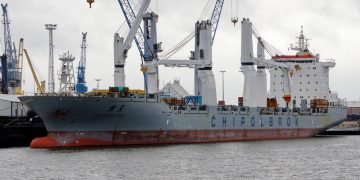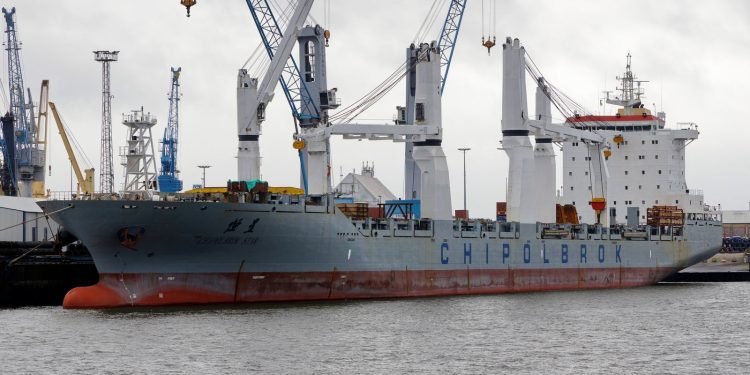By Eva Richardson | The Logistic News
In a move that reframes a decades-old partnership, the U.S. Federal Maritime Commission (FMC) has officially designated Chipolbrok, the Chinese-Polish joint maritime enterprise, as a carrier controlled by the People’s Republic of China. While the decision comes with no immediate sanctions, its symbolic and strategic weight is already sending ripples through the shipping industry and diplomatic circles alike.
This is the first time a legacy joint venture with European involvement has been reclassified under Washington’s growing effort to trace foreign influence in key logistics networks. Analysts say the move could be a precursor to stricter oversight of hybrid ownership models in global shipping—and a sign that the line between ally and asset is being redrawn.
Chipolbrok’s Origins—and Why They No Longer Insulate It
Founded in 1951 as a Cold War-era bridge between communist Poland and the newly established People’s Republic of China, Chipolbrok has long positioned itself as a neutral, specialty carrier in the breakbulk and project cargo sectors. With dual headquarters in Shanghai and Gdynia, it has operated transcontinental routes with minimal controversy—until now.
According to the FMC, recent assessments show China’s stake in the company—both in capital and governance—has grown substantially, giving Beijing effective control over strategic decisions. That, the Commission argues, justifies its reclassification under U.S. maritime rules on foreign state influence.
“This isn’t about operational misconduct,” an FMC official told The Logistic News. “It’s about understanding who holds the keys to direction and policy—and adjusting our oversight accordingly.”
Consequences Beyond the Fine Print
Though the classification carries no immediate punitive action, industry insiders believe it could change how Chipolbrok is perceived by U.S. ports, logistics providers, and insurers. Heightened compliance checks, more stringent documentation requirements, and greater scrutiny of port access could soon become standard.
“It’s not a ban—it’s a blinking yellow light,” said a maritime trade analyst in New York. “But in risk-averse industries like freight and insurance, that’s enough to shift behavior.”
Freight forwarders handling U.S.-sensitive contracts may already be rethinking partnerships. Some sources report that cargo previously allocated to Chipolbrok has begun shifting to European carriers in anticipation of tighter federal monitoring.
Poland’s Position: Diplomatic Crossroads
The decision places Poland—a founding member and 50% stakeholder in Chipolbrok—in an uncomfortable position. While the Polish government has not publicly responded, several EU diplomats told The Logistic News the reclassification could force Warsaw to clarify its strategic partnerships amid rising transatlantic scrutiny over Chinese-linked assets in Europe.
“This isn’t just about ships and ports,” said one Brussels-based trade advisor. “It’s about loyalty, alignment, and perception. Poland’s silence could be interpreted in more ways than one.”
Broader Implications: A Framework for the Future
The FMC’s move aligns with a wider push by U.S. agencies to map and, where necessary, counteract state-linked influence in global logistics. While early efforts focused on port ownership and container terminal acquisitions, attention is now turning to less visible carriers—particularly those flying under legacy or joint-venture banners.
“This is part of a toolkit that regulators didn’t have five years ago,” said a former White House supply chain advisor. “And now that it exists, we’re going to see it used.”
What Comes Next?
Chipolbrok continues to operate its U.S. routes without disruption, but legal analysts expect it may challenge the designation through diplomatic channels—or potentially at the World Trade Organization. Meanwhile, other joint ventures with indirect state ties may be watching closely.
In a maritime landscape once governed by neutrality and global alignment, the new rules are being written around control, influence, and transparency.
For the world’s shipping lines, the message is clear: it’s not just where you sail—it’s who owns the helm that matters.























